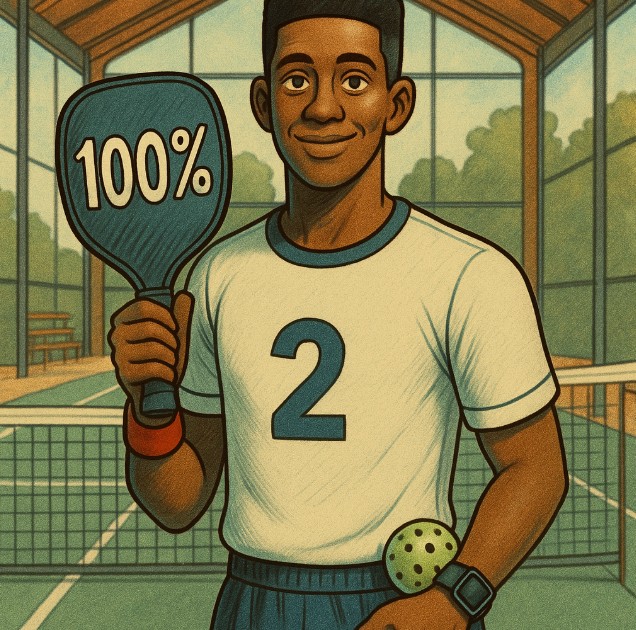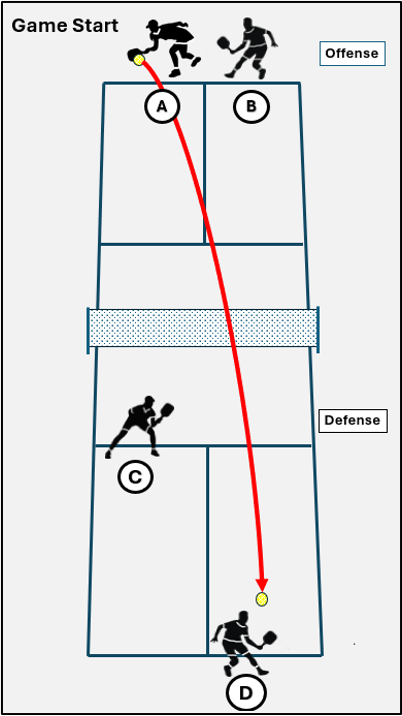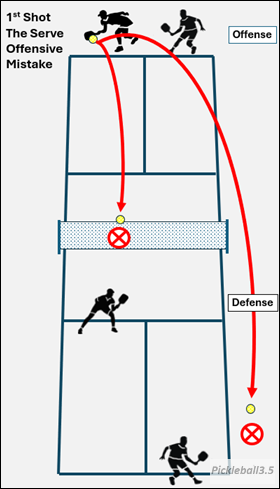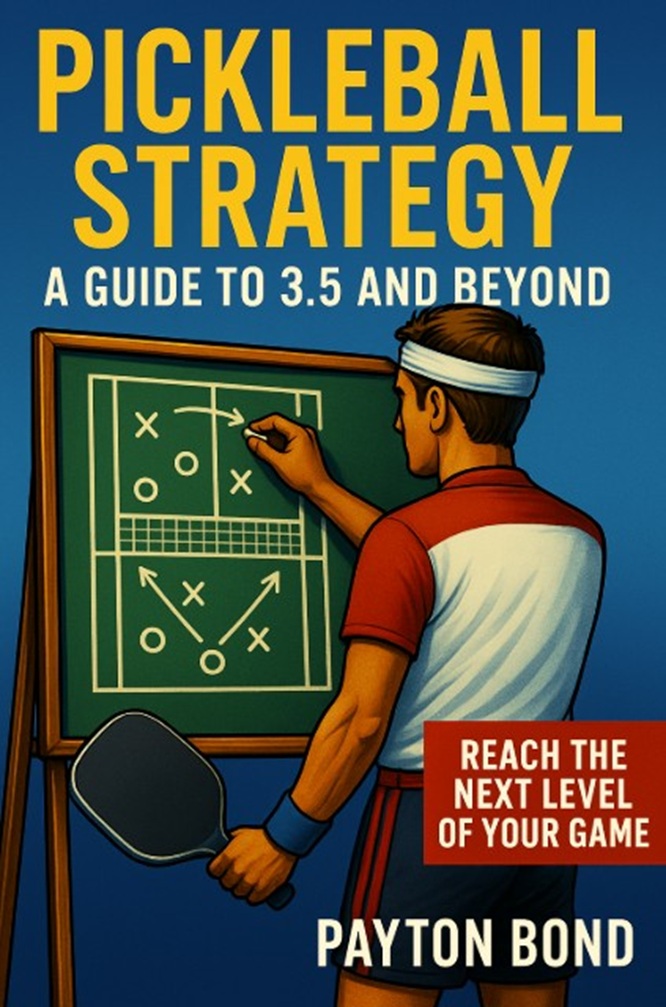
Pickleball Serve Consistency: It’s All About Starting Strong
The serve in pickleball might seem simple—you hit the ball, they hit it back, and the game goes on. But let’s face it: there’s a big difference between just getting the ball over and setting yourself up for a strong rally.
Some players see the serve as their chance to score a quick point, but experienced players know the truth: it’s not about the power or fancy spin. It’s about consistency, control, and making sure the rally starts on your terms.
Why Serve Consistency Is Key
Think of the serve as the opening line in a conversation. Start strong, and you’re more likely to keep control. Start with a stumble, and you’ll spend the rest of the rally playing catch-up—or worse, watching your serve hit the net.
To advance to the coveted 3.5+ skill level, you need a serve that’s reliable, precise, and strategic. Here’s how to make it happen:
Focus on Consistency and Control
Take a look at the illustration below. Notice the serve going safely to the middle of the opponent’s service court. That’s not just for show—it’s a smart play.

In pickleball, your serve should prioritize consistency and control over power. Sure, a blazing-fast serve sounds impressive, but if it doesn’t land inbounds, it’s just a gift to your opponent. Instead, focus on:
Emphasizing Placement: Aim for the middle of the opposing service court. Deep serves keep your opponent on their toes (literally) and buy you time to set up your next move.
Practicing for Consistency: If your serve feels like a roll of the dice, spend time on repetitive drills with a partner. Don’t worry—every player has a phase where they feel like their serve is out to embarrass them. Stick with it, and you’ll find your groove.
Mastering the Basics: Forget about spin tricks and lightning-fast serves for now. A simple, steady serve that lands deep in the opponent’s court is far more effective. Fancy doesn’t win games—consistent does.
Common Serve Mistakes to Avoid
The serve isn’t just about what you should do—it’s also about what to avoid. Here are some classic pitfalls to sidestep:

Even experienced players can fall into these common pitfalls:
- Chasing Quick Points: Trying to win the rally with a flashy serve is tempting, but it’s risky. Remember, the goal is to start the rally—not end it before it begins.
- Overusing Power and Spin: Sure, spinning the ball looks cool, but it’s not worth the added errors if you haven’t mastered the basics. Loft and depth are your best friends at this stage.
- Ignoring Placement: A deep, well-placed serve puts the ball in your court (pun intended). Make your opponent work for it by keeping them on the back foot.
Advancing Your Serve
Once you’ve nailed consistency and control, it’s time to level up:
- Target Weaknesses: If you notice your opponent struggles with backhands, aim for it. It’s not mean—it’s strategy.
- Mix It Up: Add spin, speed, or placement changes to keep your opponents guessing. But remember, even advanced serves should still be consistent.
- Minimize Risk: Missing serves at an advanced level is a no-go. Advanced techniques should only complement—not replace—a solid foundation.
Summary: Consistency Wins Games
A consistent, controlled serve isn’t just a checkbox for 3.5+ players—it’s a must. Focus on getting the ball in play with precision, then build from there. Remember:
- A missed serve is a missed opportunity.
- 3.5+ players rarely miss serves.
- Even the best serves can be returned—so keep the rally going and minimize unnecessary risks.
Keep practicing, keep refining, and keep reading posts in this section to master the pickleball serve. With consistency and control, you’re well on your way to leveling up.
Check out Payton Bonds new eBook!
Pickleball Strategy – A Guide to 3.5 and Beyond
See it on Amazon.

👤 Follow Payton Bond
All Star and Top Contributor on multiple Facebook Pickleball Forums.
Contributor at TheKitchenPickle.com.
Visit Payton Bonds Facebook Page

